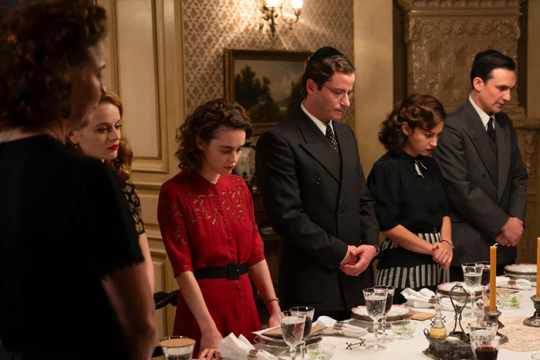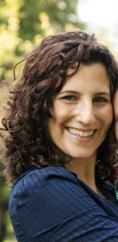
This year, I spent my birthday with my mother. As we passed our plates back and forth over lunch, we chatted about our choices, paths, hopes, and dreams. We traded stories, discussing heartaches and heartbreaks. I mostly listened to her musings, reflections, and hard-earned wisdom. I hope I can learn from her mistakes and grow from her triumphs.
We have so much to learn from our mothers, past and present. Soon, we'll return to the story of Passover and to the narratives of three remarkable mothers whose determination, fearlessness, and love changed the course of biblical history: Yocheved, Moses' birth mother and nurse; Batya, Moses' adoptive mother; and Tzipporah, Moses' wife and mother of his children.
Though Yocheved gave birth to Moses after Pharaoh issued his edict to kill all male Israelite children, she refused to let Moses die. For three months, she hid him away, defying Pharoah's decree. Then, when "she could hide him no longer," Yocheved made the ultimate sacrifice, famously placing Moses in a basket and setting it down the Nile (Exodus 2:3).
When Pharoah's daughter, whose name was Batya according to midrash, spotted Moses' basket, she rushed to draw him out of the water (Lev. Rabbah 1:3) . Seeing that he was a Hebrew child, Batya rebelled against every Egyptian mandate, opening her arms to a child she was meant to hate.
When Tzipporah and Moses encounter what some say to be an angel of God, the angel expresses his intent to kill Moses. This has traditionally been linked to Moses' failure to circumcise his son. In a moment of remarkable resolve, Tzipporah took a stone and circumcised her son (Exodus 4:26). With swift decisiveness, Tzipporah not only saved Moses, but ensured her sons still had a father, thereby protecting her family as well as the generations to come.
In the portrayals of Yocheved, Batya, and Tzipporah, the Torah reminds us that a mother's love and determination can generate unimaginable power, bravery, compassion, and understanding. It can ground heroic acts of resistance, transcend prejudice and divisiveness, and engender fathomless strength and faith. A mother's love is fierce, unceasing, and immeasurable.
Today, as war wages in Israel and Palestine, we are witnessing the staggering power of motherhood. Mothers are resolutely holding families together as their children and partners are sent to war; they are readily opening their homes and dining rooms to displaced civilians; and they're breathlessly rushing to volunteer, supplying soldiers with food, clothing, and creature comforts. We are seeing mothers - on both sides - care for the wounded and nurture the traumatized, as they anxiously count the days of war . And we are seeing mothers bravely petition, campaign, and advocate for the release of the hostages from Gaza.
One such mother, Rachel Goldberg-Polin, has fought tirelessly alongside her husband Jon, for the release of her son Hersh, saying, "we have to keep running to the end[s] of the Earth to save him." Goldberg-Polin has spoken with presidents, dignitaries, journalists, movie stars, and clergy. She's even spoken to the Pope. But perhaps most strikingly, Rachel Goldberg-Polin speaks to other mothers, appealing to their sense of family, responsibility, love, and care.
In a New York Times op-ed, Rachel Goldberg-Polin wrote:
"Every single person in Gaza has a mother or had a mother at some point. I would say this, then, as [a] mother to other mothers: If you see Hersh, please help him…I really think I would help your son, if he was in front of me, injured, near me."
In her messages to the world, Goldberg-Polin always comes back to motherhood. There, she centers her anguish, her determination, her hope, and her rage: "Where are the mothers?" she cried out in a video posted on Hersh's 60th day of captivity. "In all of these rooms, all over the world, that decide the fate of all of us…where are the women?"
As Passover approaches, I pray we find ways to harness the power of our (fore)mothers and those who served as mother figures in our lives. As we gather around our seder tables, may the lessons we share highlight our mothers' steely determination in the face of crises; their steadfast commitment in the face of great fatigue; and their unyielding hope in the face of great despair. We are here by dint of our mothers' limitless courage; we are alive because our mothers refused to give up. And so it will continue into the future.
Related Posts

“We Were the Lucky Ones:” Bringing The Holocaust Out of History Books and Into Our Homes

Melding Tradition and Innovation: Our Interfaith Toddler Naming Ceremony


